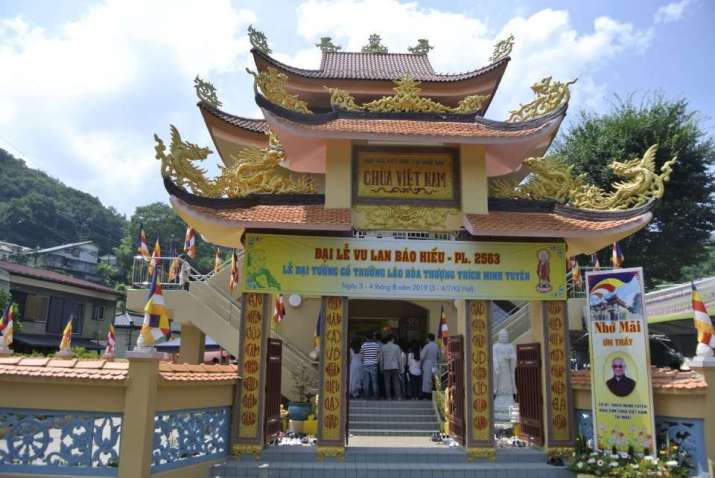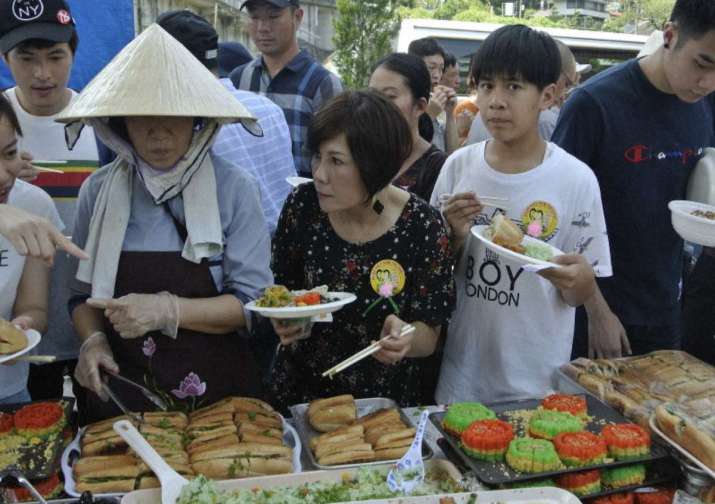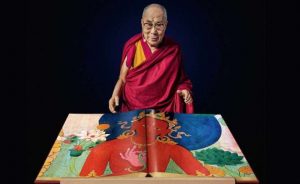
A Vietnamese Buddhist temple in the town of Aikawa in Japan’s Kanagawa Prefecture, has become a popular spiritual destination for Vietnamese people living in the Tokyo metropolitan area. Each Sunday, the temple offers rituals, retreats, and ceremonies, which are attended by hundreds of Vietnamese workers, short-term technical interns, and refugees.
The Japan Today news website reports that Kanagawa Prefecture has the largest population of permanent and long-term Vietnamese residents in Japan at 4,962, followed Western Japan’s Hyogo Prefecture with 3,692, as of December last year.
“I enjoy coming here because I can meet many Vietnamese friends,” said Vu Thi Trang, who works at a factory making boxed lunches in Sagamihara, Kanagawa Prefecture. “I can relax and I feel better,” he added. (Japan Today)
According to Japan Today, a total of 330,835 Vietnamese people lived in Japan as of late 2018, representing the third-largest group among the 2.73 million foreigners living in the country. There are about 10 Vietnamese Buddhist temples in Japan, which have become places of worship and also serve as centers for preserving Vietnamese culture and language. While all of these temples mainly target the Vietnamese community, they are also open to others, regardless of nationality, offering a spiritual refuge for all visitors.
“The temple is not only a place for followers to confide in others about their worries, but also serves as a guide in their life so they can do good deeds,” said Yu Takefumi, 69, a former refugee who adopted a Japanese name after becoming a Japanese citizen. “Basically, this religious community is supported by members’ volunteer work and it shows they are practicing Buddhist teachings in their life. Their good deeds will eventually benefit them.” (Japan Today)
Nearly 20 volunteers help the temple organize activities. However, Takefumi lamented that second-generation Vietnamese residents of Japan seldom visit the temple and are less interested in supporting the activities there.
“It would be regrettable if we cannot pass on our activities to our children, but we cannot force them,” said Takefumi, adding that they will “act according to their own experiences.” (Japan Today)

Venerable Nhuan An, who has been serving as the temple’s chief abbot since 2017, observed that Buddhism is a major religion in Vietnam. People in Vietnam feel close to Buddhist culture and it is always by their side, he explained.
“Vietnamese followers spiritually rely on Buddhist priests whenever they have troubles, as couples, or about children, or economic problems,” said Ven. An. (Japan Today)
The venerable added that he has been studying the Japanese language and is keen to build good relations with the temple’s neighbors. He visits the homes of people in the local community to ease their worries about noise and the scarcity of parking spaces caused by the influx of worshipers to the temple.
“We’re learning Japanese culture and customs and I think, little by little, Japanese neighbors have come to understand us better, and we’re getting closer to each other,” said Venerable An. (Japan Today)
See more
Temple offers spiritual support for Japan’s Vietnamese community (Japan Today)
Vietnam temple offers spiritual support for Japan community (The Mainichi)














